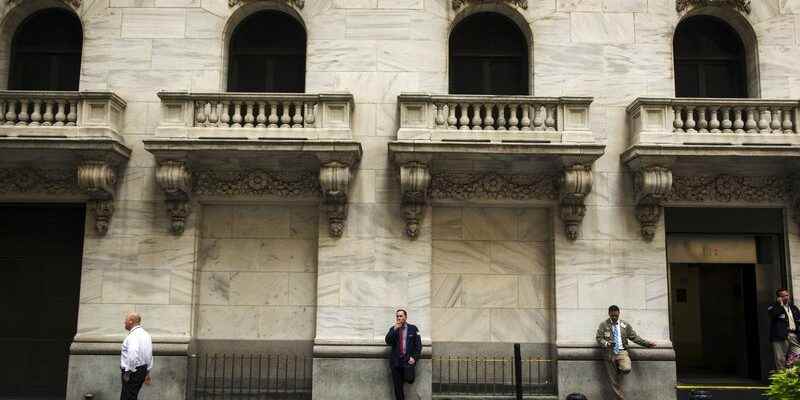PARIS (Reuters) – The New York Stock Exchange opened lower on Tuesday, once again hurt by fears of a rapid rise in interest rates, while the IMF’s pessimism for 2023, the escalation of the conflict in Ukraine and the health restrictions in China do not encourage risk-taking.
In early trading, the Dow Jones index lost 67.04 points, or 0.23%, to 29,135.84 points and the broader Standard & Poor’s 500 fell 0.70% to 3,586.79 points.
The Nasdaq Composite lost 0.85%, or 89.34 points, to 10,452.75.
Pending the publication on Wednesday of the minutes of the last monetary policy meeting of the American Federal Reserve (Fed) and of the monthly producer price figures in the United States, the markets continue to show extreme caution.
The CBOE volatility index, considered a reliable barometer of fear, rose for the fourth session in a row, to 33.56 points, near a two-week high.
The money markets are counting with a 92% probability on a November 2 hike in the Fed’s rates by three quarters of a point, despite a deterioration in the economic outlook.
The International Monetary Fund (IMF) on Tuesday lowered its 2023 global growth forecast to factor in tensions related to the war in Ukraine, inflation and rising interest rates, stressing that the situation could deteriorate significantly. .
While a virtual summit of G7 countries is scheduled for Tuesday on Ukraine, the Kremlin said that “the confrontation will continue”, with Ukrainian military and energy infrastructure also being the target of new Russian strikes.
In values, the technology groups Microsoft, Amazon, Apple and Tesla lost 0.4% to 1.9%. The yield of ten-year Treasuries approached the peak of 4.019% hit last month.
Stocks linked to the energy sector, such as Exxon Mobil (-1.27%), Halliburton (-2.69%) and Schlumberger (-1.85%), also fell, in the wake of the drop in around 2% in oil prices amid a resurgence of the COVID-19 epidemic in China which raises fears of a slowdown in demand for crude.
* For values to track, click
(Written by Claude Chendjou, edited by Kate Entringer)
Copyright © 2022 Thomson Reuters
